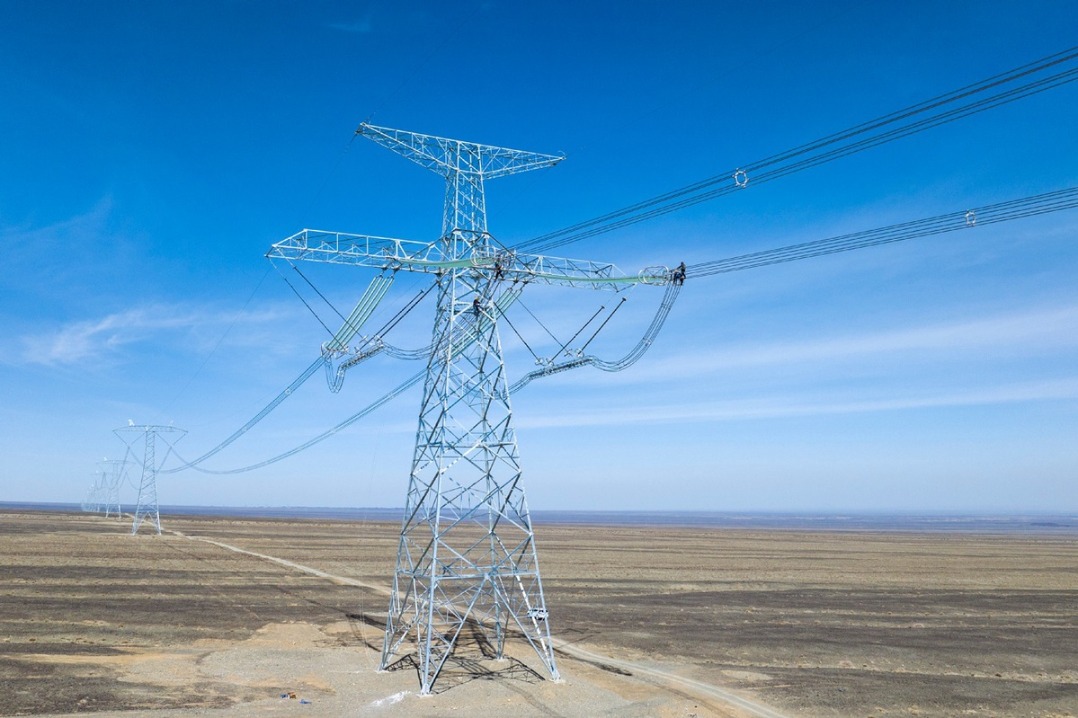Neighbors can take twilight of the Biden era as dawning of a more harmonious new day: China Daily editorial

The half-empty-glass coverage of Japanese Foreign Minister Takeshi Iwaya's visit to Beijing on Wednesday by some Western media conveys their dismay at the two neighbors making determined efforts to put their ties back on the right track for healthy development.
In his first visit to China in the post, Iwaya unmistakably tried to make his tentative hosts feel assured of the Shigeru Ishiba government's readiness to reboot the dormant Sino-Japanese relations that had frosted over due to the previous Fumio Kishida government's one-sided pro-US policy.
In his meeting with not only his Chinese counterpart Wang Yi, but also Chinese Prime Minister Li Qiang, along with other senior Chinese officials, the two sides reaffirmed the need to perceive each other as partners, rather than competitors or even a threat.
In particular, a 10-point consensus the two sides reached during Iwaya's visit on promoting people-to-people exchanges, if materialized, will effectively deepen mutual understanding and consolidate the foundation to promote cooperation in other fields, helping to address the deficit in mutual trust over the past few years.
Since the two neighbors agreed to cooperate on monitoring the Fukushima nuclear waste water discharge project in September, they have markedly accelerated the pace of mending ties. Ishiba met Premier Li in Vientiane, Laos, in October and Chinese President Xi Jinping last month in Lima, Peru. Soon after that China rolled out a 30-day visa exemption policy for visitors from Japan and multiple dialogue and cooperation mechanisms in different fields that had been stalled since the COVID-19 pandemic have been resumed between the two sides. The top Japanese diplomat's one-day visit will therefore hopefully have been conducive to promoting "strategic and mutually beneficial" relations between the two neighbors and stabilizing the situation in the Asia-Pacific.
Although the two countries still have what Iwaya said are some "challenges and matters of concern" to overcome, that the Japanese side is making efforts to address them is being taken as an indication that the Ishiba government is seeking to reassert Japan's strategic autonomy in its foreign policy.
The so-called security concerns the previous Kishida government cited to justify its hike in defense spending, participation in the US-led "chip war" against China, and intensifying military cooperation with the US and its allies were actually hand-me-downs from the Joe Biden administration, which was eager to make Japan a US proxy in the region.
These confrontational policies have only served to weigh heavily on the Japanese economy, isolated Japan within the neighborhood, and aggravated regional security tensions. The consequences of these policies prompted Kishida to abruptly step down using a party scandal as an excuse.
The Biden administration wanted Japan to be the US' anti-China bridgehead in the region, and it hyped up the "value" differences between Tokyo and Beijing. Yet in actuality, the two neighbors have time-honored and deep historical, cultural and people-to-people bonds based on the same Asian values.
The maritime dispute between the two countries had not popped out as a defining factor of their relations before the US began exploiting it to drive a wedge between them.
With a new administration about to take office in the US, the two neighbors should seize the moment as a window of opportunity to work for a "constructive and stable" relationship, as agreed by the two heads of state in their APEC-sideline meeting in Lima.
It is worth noting that Foreign Minister Wang Yi had a telephone talk with his Republic of Korea counterpart, Cho Tae-yul, one day before Iwaya's visit, in which the two sides also expressed a common wish to promote the sound and stable development of their strategic cooperative partnership and to deepen pragmatic collaboration in various fields, despite the temporary turmoil in the political circle in Seoul.
As close neighbors and important countries in Asia and the world, relations between the three neighbors hold great significance for the region and beyond. China is willing to work with both Japan and the ROK to comprehensively advance relations with the aim of building a constructive, stable and productive China-Japan-ROK community with a shared future in the new era.


































